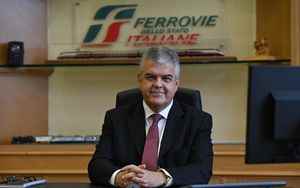(Finance) – The future of transport, between PNRR and new infrastructural and digital challenges for sustainable mobility. This is the theme of the round table that took place today in Sorrento during which – as reported by FS News, the information portal of the Group – themanaging director Luigi Ferraris presented thecommitment of the FS Italiane Group within the PNRR.
To open the round table in Sorrento, the intervention of Enrico Giovannini, Minister of Infrastructure and Sustainable Mobility who underlined the importance of the PNRR for the relaunch of the country, thanks to its 61 billion in investments, but also to the many reforms it brings with it. A plan that, together with the Complementary Fundin the context of Next Generation EU programattributed to the companies of the FS Group 25 billion euros, of which RFI has already invested 2.6.
“By mid-May we will present the 10-15 billion euro business plan and this year we will launch tenders for 24-25 billion euro – he declared Ferraris -. The Group is moving forward in line with the 2026 targets with projects on high speed, connections on infrastructures, on the redefinition of the country’s backbone and connectivity. “Among these projects is the Naples-Bari which, as specified by the ad “should see a first connection in 2024 and then arrive at full capacity in 2027 with full operation, and connect the capitals of Puglia and Campania in 2 hours”.
There challenge posed by the National Recovery and Resilience Plan, according to Ferraris, we win above all thanks to the cooperation that “must come first within our companies, with colleagues and all the people who work with us”. For this reason, the CEO of the FS Group welcomed with “satisfaction the agreement recently reached with the trade unions for the renewal of the national contract for mobility and railway activities and the company contract of the Ferrovie dello Stato Italiane Group”. For Ferraris, the PNRR constitutes “a unique opportunity to start a project to enhance people, to capitalize on skills, to focus on the many new professionals that we increasingly need today. The goal – concluded the CEO – it is always zero accidents and to achieve it dialogue with the trade union is fundamental, as is training, which is increasingly central “.
